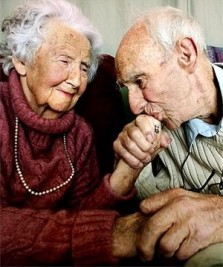|
|

Couples Counseling -
When One Partner Going Solo
to Save the Relationship
Our relationships can certainly challenge us in major ways. But at the end of the day,
our relationships are also what matters to us the most.
When experiencing couples relationship distress, it is best that partners seek couples counseling together
to iron out the wrinkles in the relationship and build healthy relationship skills to get love and peace back to the relationship.
What if one spouse is willing to go to counseling while the other is not? Should the willing spouse go to counseling
solo, without the other?
Definitely! Your relationship can be helped immensely if just one of you starts
to change. And that person will need to be you.
The Other Half's Reasons for Not Going
Most often, the other half does not want to come to couples counseling together because they are thinking something like:
- "We don't have that kind of problem."
- "Our problems are not that bad."
- "Things will get better on their own."
- "We can't afford it."
- "Anyone with any sense of pride won't even think about it."
Whether it is due to their denial, dismissal, or misconceived pride, one thing is
true: No one can force people to do things they don't
see a point of doing. It is better to respect their wish and leave them alone.

|
One can still
get things to work
|
Couples Counseling for One Still Works
Troubled relationships can still turn around even if just one partner seeks help by receiving relationship-skills training.
Usually women are more likely than men to get relationship-focused therapy alone, perhaps because in a trouble relationship,
the man may not suffer as much about the starvation of emotional connection as the woman does.
In fact, the relationship from his perspective may be downright enjoyable.
How Does Couples-Based Individual Counseling Work?
A couples-based approach with one partner can be substantially more effective than traditional individual counseling,
when it comes to improving couples relationships.
Couples-based individual counseling focuses on coaching practical skills for improving the relationship,
but not on uncovering materials
sourced from childhood or other experiences. This is how it begs to differ from traditional individual counseling.
In couples-based individual counseling, the partner can learn conflict management skills to handle problems that inevitably arise
in relationships.

|
Developing ability to recognize
patterns of interaction
|
Couples-based individual counseling helps the willing partner:
- identify his/her own negative interaction patterns;
- recognize his/her own individual role in the patterns;
- commit to do his/her own part to change them.
Most relationships get into troubles because each party in the relationship tends to spend a lot of time trying to change or fix
the other person.
But when one of them, often the woman, comes to couples-based individual counseling,
she will learn to change her approach and focus on how she can become a happier person without having her happiness tied to
external sources.
When one partner changes her behavior, the pressure on the other is gone. And when that pressure is
dissipated,
the other half can think more objectively and his whole perspective changes.
A Couple Relationship is a System
A couple relationship is a system, both partners participate in the system and shape it. When one
part of the system changes,
the whole system will inevitably change subsequently.
With in a relationship system, when one partner makes a major change, the entire relationship
cannot stay the same. It will change as well.
For example, when one partner stops trying to change her partner and stops pointing fingers, making accusations,
or withholding affection and attention, her energy often shifts to self-improvement.

|
Learning how to
listen nondefensively & nonjudgmentally
is half of a success already
|
When her energy shifts to self-improvement, she often learn to listen
nondefensively, take responsibility for her own feelings and needs,
and make the changes that is needed to make herself happy.
Often she will be surprised to find that when she is happy within herself and no longer has her eyes on her partner, he also changes.
Moving to a Conscious Relationship
If you start to change and take loving care of yourself, your partner may be more attracted to you and start to
take better care of the relationship as well.
Or he may well get angry and feel confused for a while. Often at some later time, he will
shift and make more conscious change himself as well.
With the clients that I work with, most of the time when one partner really makes
conscious choice for herself, the other partner eventually stops being reactive
and starts to learn to become more conscious himself.

|
Moving away from blaming,
and into sharing love
with each other
|
When each partner in a relationship makes conscious choice for their feelings and needs, they move beyond neediness and blame,
and are able to share their love with each other.
In conscious relationship, you also learn to cope with the things that you canít change in the relationship,
and learn to accept it with more inner peace.
Ground Rules for Couples-Based Individual Counseling
In order for couples-based individual counseling to work, certain conditions must exist:

|
It is worth all the while
to grow old together
within the net of
secure attachment
|
- There must be no abuse, violence, or cheating.
- The focus of counseling is on the relationship, not the individual.
- The partner in counseling must recognize that they won't be able to change the other person, only himself/herself.
- The partner who doesn't come to therapy must still want to improve the marriage and should be informed about what goes on.
No matter how challenging our relationships can be, at the end of life's journey,
it is our relationship that is what matters to us the most.
It is worth all the while to go solo to counseling to save it before it's
too late.
Join me now to take on this path of happier life and more fulfilling relationships!
Tell your friends about inner-awakening-counseling.com! They too deserve this life transforming and enriching path.
Dr. Mei-whei Chen, Licensed Clinical Psychologist
737 N Michigan Ave, Ste 2130, Chicago, Illinois 60611
847-915-0331
Website: www.inner-awakening-counseling
Email: Mei@inner-awakening-counseling.com
|
Copyright © 2014 by Dr. Mei-whei Chen
|





